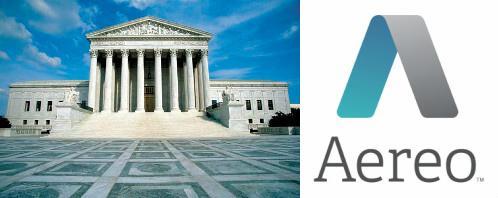Supreme Court Rules Against Aereo TV Streaming Service

The Court vowed that the ruling “will not affect cloud-storage providers” but concluded that Aereo “transmits a performance of petitioner’s copyrighted works to the public,” which means the company will have to pay broadcasters to continue offering broadcast programs to its subscribers—a move that will likely spell the end of the service.
Delivering the opinion of the Court , Justice Stephen Breyer wrote: “The Copyright Act of 1976 gives a copyright owner the ‘exclusive righ[t]’ to ‘perform the copyrighted work publicly.” The Act’s Transmit Clause defines that exclusive right as including the right to ‘transmit or otherwise communicate a performance…of the [copyrighted] work...to the public, by means of any device or process, whether the members of the public capable of receiving the performance…receive it in the same place or in separate places and at the same time or at different times.’ We must decide whether respondent Aereo, Inc., infringes this exclusive right by selling its subscribers a technologically complex service that allows them to watch television programs over the Internet at about the same time as the programs are broadcast over the air. We conclude that it does.”
Responding to the ruling, Aereo CEO and Founder, Chet Kanojia called the decision “a massive setback for the American consumer.”
“We’ve said all along that we worked diligently to create a technology that complies with the law,” Kanojia wrote in a blog on aereo.com, “but today’s decision clearly states that how the technology works does not matter…It is troubling that the Court states in its decision that, ‘to the extent commercial actors or other interested entities may be concerned with the relationship between the development and use of such technologies and the Copyright Act, they are of course free to seek action from Congress.’ That begs the question: Are we moving towards a permission-based system for technology innovation?
”…We will continue to fight for our consumers and fight to create innovative technologies that have a meaningful and positive impact on our world.”



















































